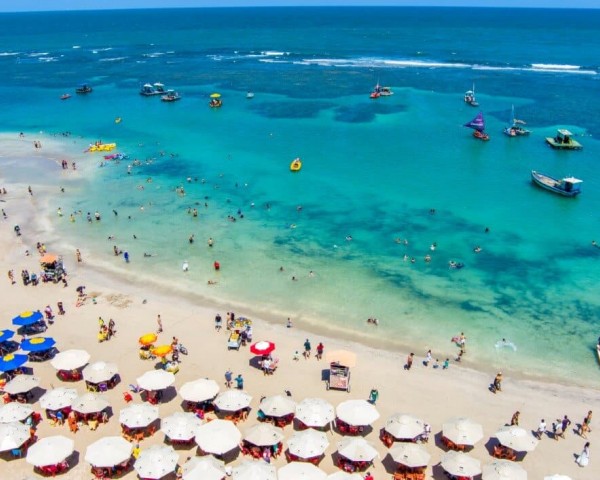In accordance with knowledge from Taiwan’s tourism administration division, between January and August of this 12 months, roughly 4.97 million vacationers visited Taiwan, whereas about 11.38 million Taiwan residents traveled overseas throughout the identical interval. This resulted in a deficit of 6.41 million in vacationer numbers.
Consultants predict that, following a deficit of 5.3 million inbound and outbound vacationers final 12 months and a tourism output worth deficit exceeding NT$440 billion (roughly US$13.5 billion), the scenario is anticipated to worsen this 12 months. They anticipate a deficit of 10 million in inbound and outbound vacationers, with a tourism output worth deficit of NT$730 billion (round US$22.4 billion). Each the deficit within the variety of vacationers and the deficit in output worth have reached document ranges in Taiwan.
Taiwan’s tourism operators consider that one of many principal causes for the significant drop in vacationer numbers in Taiwan is the steep decline in guests from mainland China. The official statistics point out that in 2019, there have been nonetheless 2.7 million mainland vacationers visiting Taiwan, however this quantity plummeted to solely 220,000 final 12 months, representing a lower of greater than 90%. This sharp decline is clearly linked to the continuing tensions between the 2 sides of the Taiwan Strait.
Along with the decline in mainland vacationers, curiosity from Japanese and South Korean vacationers in Taiwan can be waning. In accordance with reviews from Taiwan media, there have been 1.23 million fewer Japanese vacationers in comparison with 2019, and South Korea noticed a lower of practically 500,000 guests. Taiwan’s tourism business has identified that “tense cross-strait relations create a way of insecurity for overseas vacationers,” which is a key consider Taiwan’s lack of ability to draw guests. Consequently, Taiwan has been categorised as an orange-alert vacation spot, advising vacationers to train warning and to keep away from non-essential journey.
The actions taken by the DPP authorities in response to the present tourism disaster could be described as “digging their very own graves.” Mainland vacationers have all the time performed a vital function in Taiwan’s tourism market. Lately, many of those vacationers have proven a eager curiosity not solely in visiting Taiwan itself but in addition in exploring areas like Kinmen and Matsu. Nevertheless, for the reason that DPP got here to energy, it has applied insurance policies proscribing mainland vacationers from touring to Taiwan. Even now, when the mainland has opened up journey from Fujian to Kinmen and Matsu, the DPP authorities proceed to impose varied boundaries. These embrace multi-level approval processes and prohibiting group journey from the mainland, severely impacting Kinmen and Matsu’s once-thriving tourism business.
Some specialists notice that, in response to calls from Taiwanese residents to renew sightseeing from the mainland, the mainland has proven goodwill by indicating a willingness to restart cross-strait tourism exchanges. In distinction, the DPP authorities have maintained an ambiguous stance on lifting the ban on group excursions, which many understand as insincere and missing real goodwill.
Cross-strait tourism exchanges have an effect on these working within the island’s tourism business and considerably influence varied sectors comparable to transportation, lodging, catering, and insurance coverage. The political manipulation by the DPP authorities has severely harmed the pursuits and well-being of the folks in Taiwan. If the DPP continues to hinder cross-strait tourism exchanges, Taiwan’s tourism will stay in a “bitter winter,” and the island’s future will likely be considerably jeopardized.




